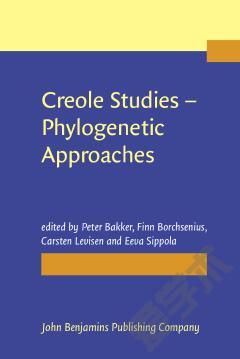Creole Studies – Phylogenetic Approaches.
This book launches a new approach to creole studies founded on phylogenetic network analysis. Phylogenetic approaches offer new visualisation techniques and insights into the relationships between creoles and non-creoles, creoles and other contact varieties, and between creoles and lexifier languages. With evidence from creole languages in Africa, Asia, the Americas, and the Pacific, the book provides new perspectives on creole typology, cross-creole comparisons, and creole semantics. The book offers an introduction for newcomers to the fields of creole studies and phylogenetic analysis. Using these methods to analyse a variety of linguistic features, both structural and semantic, the book then turns to explore old and new questions and problems in creole studies. Original case studies explore the differences and similarities between creoles, and propose solutions to the problems of how to classify creoles and how they formed and developed. The book provides a fascinating glimpse into the unity and heterogeneity of creoles and the areal influences on their development. It also provides metalinguistic discussions of the “creole” concept from different perspectives. Finally, the book reflects critically on the findings and methods, and sets new agendas for future studies. Creole Studies has been written for a broad readership of scholars and students in the fields of contact linguistics, biolinguistics, sociolinguistics, language typology, and semantics.
{{comment.content}}








 京公网安备 11010802027623号
京公网安备 11010802027623号